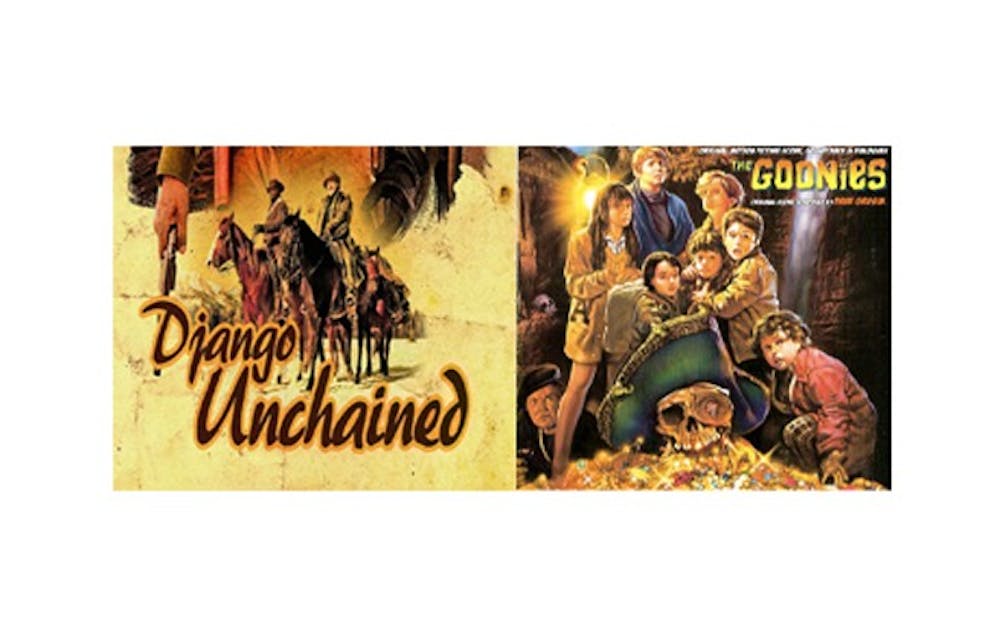While many students on campus have perceived the hype surrounding Quentin Tarantino’s new film Django Unchained, few are likely to have heard of the 1966’s Django, directed by Sergio Corbucci, which inspired Tarantino’s current film.
The Italian Studies Department is making moves to change that. La Tavola, an Italian Language activity group, sponsors film showings on campus every semester. This semester they’ve chosen to play spaghetti westerns.
Spaghetti westerns constitute a genre that began around the 1960s. Often starring leading American males such as Clint Eastwood, the westerns were directed and produced by Italians, earning them the pasta-tastic-title. Django was the first western on La Tavola’s list.
“We had been talking about playing a genre series for a long time,” said Matteo Gilebbi, director of La Tavola and lecturing fellow in Italian Studies. “The Tarantino movie gave us an easy reason.”
La Tavola events provide students with exposure to Italian culture outside the classroom. Other events include Bocce Tournaments and an Italian dinner series, but the film showings are a particularly popular event.
“With the movies, it’s easy for [the students] to take away what they want to,” Gilebbi said. “It’s culture disconnected from the direct learning of language.”
The spaghetti westerns are a favorite for Tarantino as well. He has said in the past that Django is one of his top five films of the genre. Django Unchained looks to be drastically different from the original but maintain some of the same racial themes. Unchained follows the story of a freed slave (Jamie Foxx) on a search to find his wife, while the 1966 version recounts the violent struggle between a faction of white racists and an anti-government Mexican militia.
The original Django is a rebel without a cause; he betrays both sides to further his own interests, a common theme in spaghetti westerns.
“The heroes are not Superman or even Batman,” said Gilebbi of the spaghetti western genre. “There’s not always happy endings.”
Today’s Django has more at stake in the racial issues of the film, but Tarantino will likely try to preserve some of the character elements that made the original Django unique.
Unchained stars some of Tarantino’s favorite actors, such as Christoph Waltz and Samuel L. Jackson. Leonardo DiCaprio, Jonah Hill and Kerry Washington flesh out the ensemble. The movie will be released on Christmas Day and many involved in the project predict it will incite sizeable buzz.
Like Inglourious Basterds and some of Tarantino’s other films, Django Unchained focuses on a time in the not so distant past that reveals the darker side of humanity. The writer/director often sets his films in an active historical context while adding his own twists and cinematic flair.
Yet, according to Arts of the Moving Image Professor Markos Hadjioannou, that may come at a price: “The danger, of course, is that his ahistorical ‘cooler than cool’ version of America’s past and present leaves little room for a serious understanding of the complexities of the issues at hand.”
Unchained’s trailers and promos seem to promise audiences Tarantino’s distinct sense of humor and ravenous violence. However, it’s that “cool, cine-maniac quirkiness” that can lead to the film being taken over by “bold visuals and sexy dialogue,” said Hadjioannou. He worries the “mental appreciation of the political radicalness” will be overshadowed. Nonetheless, the AMI professor is “very much looking forward to seeing his new film,” as is Gilebbi and, seemingly, most of America.
To see part of where Tarantino’s inspiration comes from, Duke students can attend the upcoming showings of La Tavola’s spaghetti westerns. A complete schedule can be found online on the Italian Studies Department website.
Get The Chronicle straight to your inbox
Signup for our weekly newsletter. Cancel at any time.

